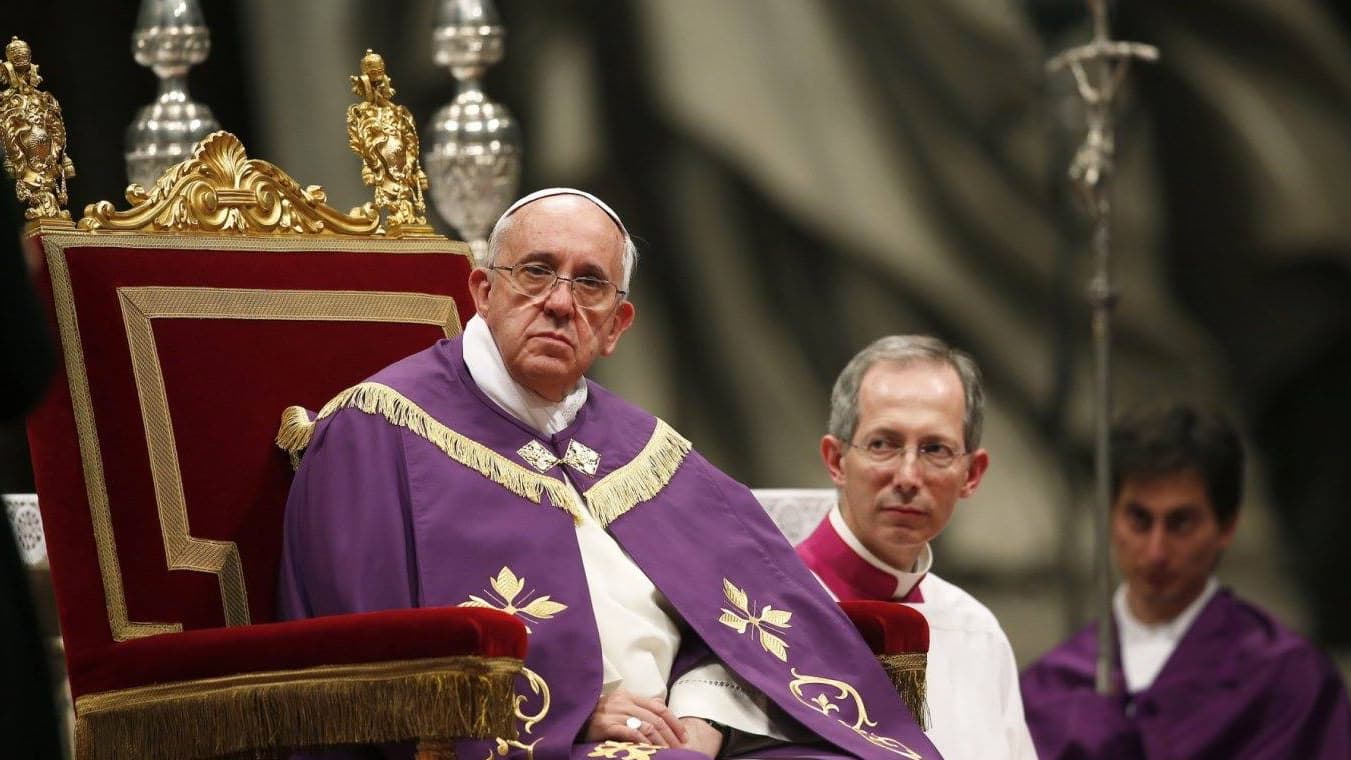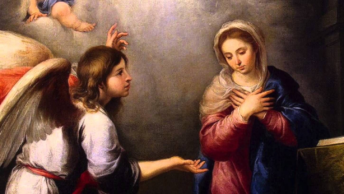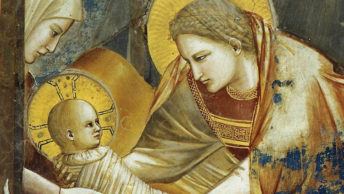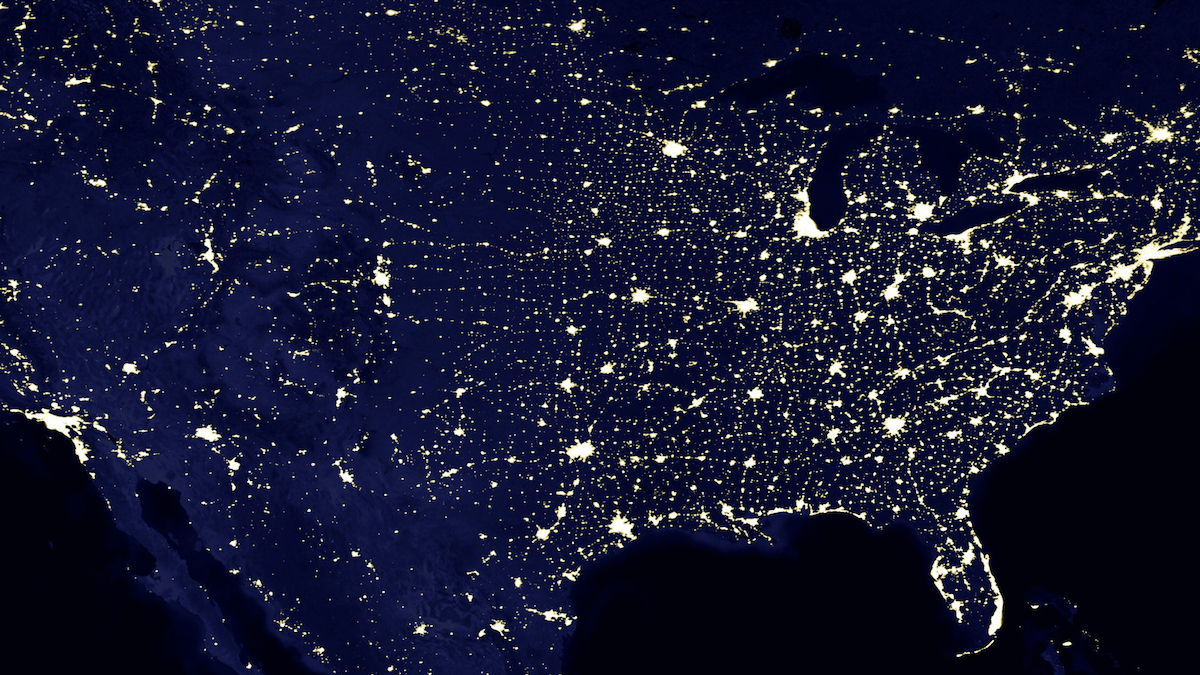If, biblically speaking, grace is a gift from our Heavenly Father that is gratuitously offered to us through His Son and Our Brother, Jesus Christ, in love and fellowship of the Holy Spirit, so as to enable in and through us that healing spiritual power which only the mercy and love of Our Saviour Jesus Christ can only give, then the Advent season must really be a visible sign of this healing gift!
Within and thanks to this season of joyful expectant waiting and preparation for both Jesus’ Nativity at Christmas and his eventual return at his Second coming, we too can tangibly experience the Father’s loving mercy for us. To begin with, Advent’s grace reminds us that God himself, in the Babe of Bethlehem, is coming to us!
In his homily of the celebration of the First Vespers of the First Sunday of Advent, at the Vatican Basilica on Saturday 2 December 2006, Pope Benedict XVI offered us the following deep reflection regarding the coming of God:
At the beginning of a new yearly cycle, the liturgy invites the Church to renew her proclamation to all the peoples and sums it up in two words: ‘God comes.’ These words, so concise, contain an ever new evocative power.
Let us pause a moment to reflect: it is not used in the past tense—God has come, nor in the future—God will come, but in the present—‘God comes.’ At a closer look, this is a continuous present, that is, an ever-continuous action: it happened, it is happening now and it will happen again. In whichever moment, ‘God comes.’ The verb ‘to come’ appears here as a theological verb, indeed theological, since it says something about God’s very nature. Proclaiming that ‘God comes’ is equivalent, therefore, to simply announcing God himself, through one of his essential and qualifying features: his being the God-who-comes.
Advent calls believers to become aware of this truth and to act accordingly. It rings out as a salutary appeal in the days, weeks and months that repeat: Awaken! Remember that God comes! Not yesterday, not tomorrow, but today, now!
The one true God, ‘the God of Abraham, Isaac and Jacob,’ is not a God who is there in Heaven, unconcerned with us and our history, but he is the-God-who-comes. He is a Father who never stops thinking of us and, in the extreme respect of our freedom, desires to meet us and visit us; he wants to come, to dwell among us, to stay with us. His ‘coming’ is motivated by the desire to free us from evil and death, from all that prevents our true happiness. God comes to save us.
The Fathers of the Church observe that the ‘coming’ of God—continuous and, as it were, co-natural with his very being—is centered in the two principal comings of Christ: his Incarnation and his glorious return at the end of time (cf. Cyril of Jerusalem, Catechesis 15,1: PG 33, 870). The Advent Season lives the whole of this polarity.
In the first days, the accent falls on the expectation of the Lord’s Final Coming, as the texts of this evening’s celebration demonstrate. With Christmas approaching, the dominant note instead is on the commemoration of the event at Bethlehem, so that we may recognize it as the ‘fullness of time.’ Between these two ‘manifested’ comings it is possible to identify a third, which St. Bernard calls ‘intermediate’ and ‘hidden,’ and which occurs in the souls of believers and, as it were, builds a ‘bridge’ between the first and the last coming.
God’s coming fills us with great wondrous silence before the God who became a human person in the Babe Jesus Christ. Hence, Advent’s grace becomes for us a school wherein we learn to grow in silence to contemplate this marvelous mystery of the Verbum Dei caro factum est (And the Word became flesh and dwelt among us, John 1:14). Thus, the figure of St. Joseph is of great importance and relevance concerning this very basic virtue in Christ’s discipleship about prayerful reflection. When talking about St. Joseph’s silence which shows his fullness of faith, Pope Benedict XVI, in his Angelus address of 18 December 2005, had this to say about this great man in salvation history:
His silence is permeated with the contemplation of the mystery of God, in an attitude of total availability to the divine will. In other words, the silence of St. Joseph does not demonstrate an empty interior, but rather the fullness of faith that he carries in his heart, and that guides each of his thoughts and actions. A silence through which Joseph, together with Mary, guard the Word of God, known through sacred Scripture, comparing it continually to the events of the life of Jesus; a silence interwoven with constant prayer, a prayer of blessing of the Lord, of adoration of his holy will and of boundless confidence in his providence. It is not exaggerated to say that Jesus will learn — on a human level — precisely from “father” Joseph this intense interior life, which is the condition of authentic righteousness, the “interior righteousness,” which one day he will teach to his disciples (cf. Matthew 5:20). Let’s allow ourselves to be “infected” by the silence of St. Joseph! It is so lacking in this world which is often too noisy, which is not favorable to recollection and listening to the voice of God. In this time of preparation for Christmas, let us cultivate interior recollection so as to receive and keep Jesus in our lives.
Silent reflection on the mystery of God Incarnate motivates us to infect the world around us with his holy presence by means of our actions. How interesting is the email entitled The Advent Virus, containing a profound meditation on Advent as a virus which infects and replicates within our soul its saintly bacteria of hope, peace, joy and love of the God who truly became man while remaining truly God.
WARNING……WARNING: ADVENT VIRUS
Be on the alert for symptoms of inner Hope, Peace, Joy and Love. The hearts of a great many have already been exposed to this virus and it is possible that people everywhere could come down with it in epidemic proportions. This could pose a serious threat to what has, up to now, been a fairly stable condition of conflict in the world.
Some signs and symptoms of The Advent Virus:
- A tendency to think and act spontaneously rather than on fears based on past experiences.
- An unmistakable ability to enjoy each moment.
- A loss of interest in judging other people.
- A loss of interest in interpreting the actions of others.
- A loss of interest in conflict.
- A loss of the ability to worry. (This is a very serious symptom.)
- Frequent, overwhelming episodes of appreciation.
- Contented feelings of connectedness with others and nature.
- Frequent attacks of smiling.
- An increasing tendency to let things happen rather than make them happen.
- An increased susceptibility to the love extended by others as well as the uncontrollable urge to extend it.
Please send this warning out to all your friends. This virus can and has affected many systems. Some systems have been completely cleaned out because of it.
Advent’s grace is there to be shared with those in need. That is why Pope Francis rightly exhorts us in his Angelus address of December 2, 2018:
Advent invites us to a commitment to vigilance, looking beyond ourselves, expanding our mind and heart in order to open ourselves up to the needs of people, of brothers and sisters, and to the desire for a new world. It is the desire of many people tormented by hunger, by injustice and by war. It is the desire of the poor, the weak, the abandoned. This is a favourable time to open our hearts, to ask ourselves concrete questions about how and for whom we expend our lives.
Advent is a time of spending our lives to the Jesus of faith as well as to the Jesus who is still suffering in the destitute and the vulnerable. When we care for Him in them we can truely say that Advent has been for us an excellent grace indeed!








